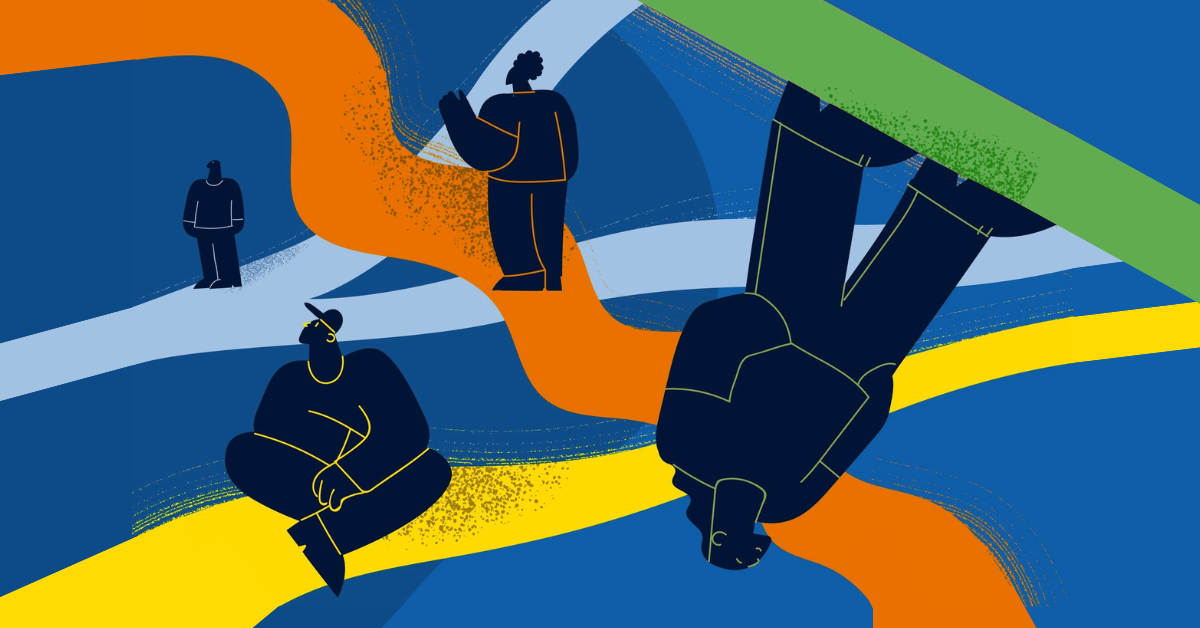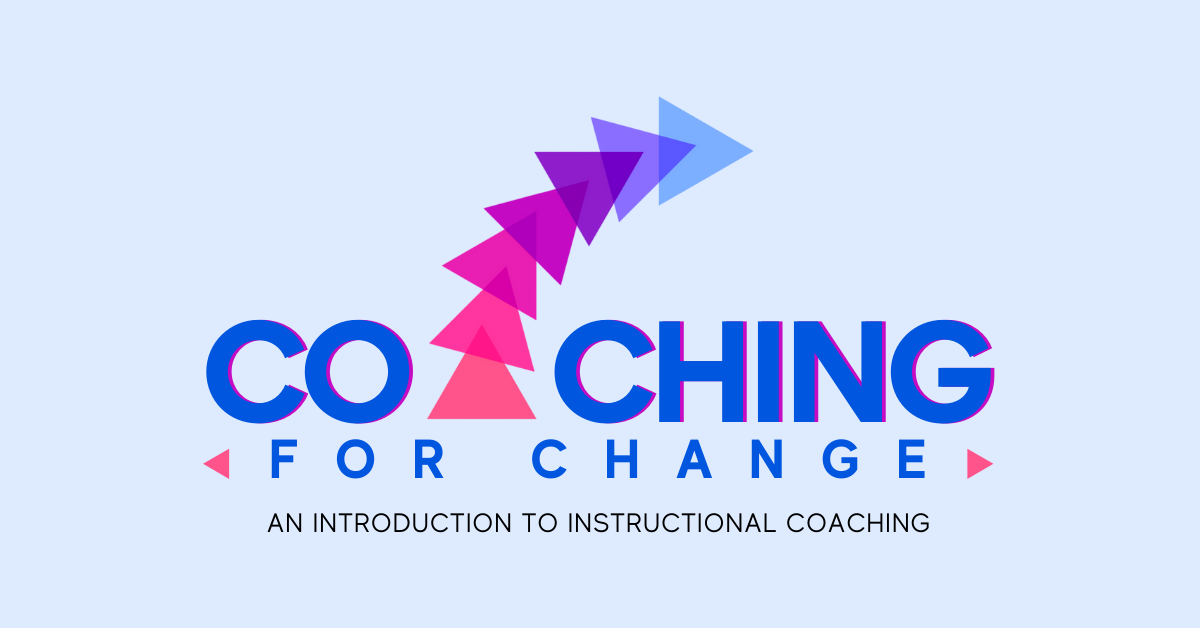|
Fundamental practices for navigating guidance and connection even in highly challenging environments.
CPET has had an ongoing partnership with East River Academy (ERA), the high school on Rikers Island, for many years, and I am one of several coaches who has worked on the Island, providing professional development support to a group of nearly 45 educators.
When you work at a school on Rikers Island, you have to plan your day more deliberately than you do at a typical school or workplace. This means packing your belongings in a clear bag, and double checking you have what you need, because there is no easy way to leave once you go through the four rounds of security checks. At the end of my first day working at ERA as a literacy coach, I finally got to the exit door and tried to open it, but it was locked. I looked back at a correction officer who chuckled at my naivete, “You can’t just walk out of a jail. Sign out here and show your ID.” We both laughed. One of my many rookie mistakes. Before you even get to the school, there is paperwork to confirm you have been vetted and approved to enter the Island. You have to tell all the people who might try to reach you during the day that you won’t be able to communicate until you get back to your car or locker at the end of the day, where you have to leave your phone. No computers are allowed inside the jail; only paper and pens. Actually, I started to bring pencils, because pens are coveted items in the classrooms, and didn’t want to get caught in the position of having a student inmate asking to borrow my pen instead of the golf pencils that students are given. I learned this the hard way, during one of my visits when a student asked to borrow my pen that I was using to take notes, and when I hesitated answering him, he became insulted and said, “What do you think I’m going to do with it? I just want to take notes with a pen!” I felt ashamed because I knew I could not give it to him, but also believed him that he wanted it for classwork. I shoved my pen back into my bag and apologized, preventing a potential issue for the teacher or even the correction officer in the room. From that point on — only pencils for me. Reaching for connection
I wish I could enter the schools inside Rikers Island with tools in my clear backpack to reach every single student and help every teacher.
The one who doesn’t speak but comes to class and keeps his head down; the one who only speaks Spanish but can’t read in Spanish, so it’s hard to even help him with translations; the students whose math or reading levels are so low that it is difficult to know what they can read or do beyond simple addition and subtraction; the students who are so insightful when we read a text, but put their head down when we ask them to write their thoughts; the students who are so struck by a visitor they want to talk to you, say hi, and let you sit with them and help them with the work. These students are perhaps the most heartbreaking, because I know I may not see them again when I leave the classroom, and while I don’t know why they are in Rikers at all, I just want to help them as much as I can in the tiny bit of time I have with them, and hope their futures turn around. One of the last students I interacted with asked me if I knew how hard it would be to become a plumber, and if it paid well. I told him he would need training and a certificate, but plumbing is steady, good work, and suggested he talk to his carpentry teacher about this goal. He asked me about it several times throughout the class. I reminded him that although he should talk to his carpentry teacher, all of his classes will help prepare him for plumbing: there is extensive math, science, technical reading, and creative thinking involved in plumbing. Keep going, I told the student, it is not going to be easy, but do the best you can, and let your teachers work with you. Framing my role
One day I was in an earth science class with a particular teacher who always referred to me as “Dr. Rigolosi.” I do have a doctorate, and this is my title, but in schools I tend to not use “Dr.” title because I have found it creates a distance that I’m trying to avoid. On this particular day, a student I was working with perked up and asked, ”Oh wait, you’re a doctor? What kind?” I dread this kind of question from a student because I know what comes next.
“I have a doctorate degree.” “So, are you like a pediatrician?” “No, no, not at all. No medicine, my doctorate is in education.” I could see the excitement on his face fade fast. He preferred the idea that I was a pediatrician. “So you are not a pediatrician or a doctor, but a doctor of teachers?” Saying it this way sounds so over the top. “Well, yes, that’s one way of putting it,” I replied. “So if you are a doctor of teaching, what are you going to teach me?” “I was trying to read with you about the water cycle. Let’s go back to your reading. I’m trying to teach you right now.” He agreed, we returned to the water cycle, but his enthusiasm was evaporating. These are the conversations that keep me on my toes. And humble. The young people who are incarcerated at Rikers are in limbo. Many of them are awaiting a court date. A depressing reality is that Rikers is mainly made up of boys or men of color from low-income neighborhoods of New York City. Some of them arrive at Rikers and begin to attend school more consistently than they ever had. So what on earth can I, or any of the coaches who enter the schools at Rikers, do to help support the teachers who are charged with looking after them? Bearing witness
Remarkably, the retention of teachers at Rikers is extremely high. There are many teachers who have worked there for two decades, and some of those teachers even teach summer school, too. We bear witness for teachers during both positive and difficult classroom moments.
Sometimes you have to be a bit creative to notice the positive moments in classrooms at Rikers. For instance, on a different day in that same earth science class, the teacher was presenting on rocks: igneous, metamorphic, sedentary. We looked at pictures in textbooks and projected on the screen, and noticed the differences between them based on how they were formed. “You know, Mr., this would be so much easier if you could bring examples for us to look at. It’s hard to tell the differences between them on the screen.” The teacher looked at the student with a straight face and said, “Son, I can’t bring rocks into a prison.” “Oh, that’s true, Mr. — good point.” Everyone started laughing and it was a moment of levity. Of course, they joked, the teacher can’t bring rocks into prison! It was a moment of students being curious and engaged enough to ask their teacher for resources, forgetting for just an instance about their reality. In a meeting with the teacher later that day, I reminded him of this class moment — it was a quick moment, and I was happy to have been there to relive it with him. This happens so often in my classroom visits — I am there to review with teachers the small but wonderful moments that happen in their classes. So many micro events happen throughout a day; reviewing some of the moments they may not have reflected on can be empowering for a teacher, helping them to feel seen. Listening or bearing witness to the more challenging moments is just as important. I’ve met with teachers who are overwhelmed by the circumstances — by the students who are there one day but not the next because of court dates or circumstances from their housing, because of the constant underlying tension between the students and the correction officer in the room, or the teacher’s awareness that the wrong look or words could escalate into a fight between students. Listening, witnessing, and staying present for teachers when we meet or when I am visiting their classrooms is a way to experience, even for a moment, the difficulties that the teachers and students endure daily at Rikers. Malcolm Knowles, a psychologist who specialized in adult learning theory, explains how the role of a teacher working with adults can be different from a teacher working with children. In adult learning, Knowles explains that an adult teacher is “more a guide than a wizard.” In Elena Aguiliar’s The Art of Coaching Teachers she takes this idea of adult teacher as guide and extends it even more: “a coach needs to be an expert at listening: It is this skill which we must excel at more than any other.” When working with teachers who are in particularly high-stress schools or working with high-needs students, making space to listen, ask questions, and helping them frame their teaching experiences is a way to coach them. Making space for the teacher to say what they are seeing in their classrooms, and what they are feeling about the often tumultuous environment is a way to bear witness as a coach. Providing tailored support
Every school has a school culture that we are either told about as soon as we enter the school, or we figure out shortly after. At some schools, for instance, we quickly realize the copy machine policy, or that the culture around birthday celebrations is a big deal (or not).
One of the constant challenges at East River Academy is that the student body changes somewhat quickly. Between court dates and issues with student-to-student fighting, the student population can change from day to day; however, some students are there throughout the semester. Knowing this about the particular student body at ERA, we try to tailor our resources so that units can be shortened or extended as needed. Short stories are more popular than novels for this reason, and essays based on a short text are a more realistic assessment than an essay based on a novel. Having introductory lessons for new arrivals is crucial, so helping teachers accumulate resources for this transient student body has to become a part of our professional support. This requires research and conversations with teachers to get an understanding of their needs, challenges, and strategies they have already tried. We also work on adapting curricula they are already using to make it work for their students. This is specialized professional development in and of itself, as we have helped restructure units and lessons to fit the school’s needs. We cannot go into this school (or any school) pushing a particular curricula or series of best practices. Instead, working with the teachers’ needs in front of us and providing resources for their unique population is key to truly supporting their work. Reflecting & moving forward
In one of our last professional learning sessions with ERA teachers, I was charged with providing resources on ways they can incorporate more small group work in classes. This is a particularly challenging topic for teachers whose students can have difficult — sometimes violent —relationships, and may prefer to work alone.
In retrospect, what I wish I pointed out at the time was that their students are actually doing small group work frequently, but in an organic way. Just that day, I had witnessed a pair of students pulling out characteristics in a story, and unprompted, these two students started pointing out examples in the text to each other and writing these examples down. When students were practicing for the GRE math questions, I noticed a pair of students start talking to each other about the problems. This paired group work was happening, but on their terms. My question should have been — what is the best way to handle these positive paired work moments? Should we highlight them in class, or will that ruin the moment, and make it feel too much like “school?” Should we nudge for paired work even if some students like to work in pairs and others don’t? Is it best to just leave the pairs working if they are working well, and perhaps after class, praise the students for working so diligently? Or does that kill the vibe? This is a very nuanced conversation, and one I wish I had with the teachers instead of reviewing the typical reasons and methods for implementing small group work.
The moments I am sharing here don’t really feel like mine to tell. I am not one of the teachers who works 180 days of the year on Rikers Island; there is a part of me that hesitates even sharing glimpses inside the prison. But I also believe these stories have value, and there is a portion of our population who spend a chunk of their youth in prison, and adults who have dedicated their professional lives to helping them.
We need to hear more of their stories, and I am offering a small window into their world. Many schools can be challenging and humbling; they can keep us all on our toes. Working at a particularly high-needs school requires high-level and sensitive coaching. Bearing witness by listening, observing, and holding a mirror for teachers to talk through their classroom experiences is a way to enter the coaching work. Tailoring the professional development and resources is fundamental; it has to work for the particular student body. Finally, being a reflective practitioner and acknowledging how I can improve my craft is challenging and can feel self-deprecating, but it is also an essential step to providing quality professional support. When a school is riddled with challenges, it can be difficult to know how to support teachers and how to help them grow as practitioners. These three methods offer a starting point, positioning the coach as an active listener and observer, and encouraging the coach to be honest about the effectiveness of their professional support, willing to modify and adapt the support to answer the school’s needs. |
|
The Center for Professional Education of Teachers (CPET) at Teachers College, Columbia University is committed to making excellent and equitable education accessible worldwide. CPET unites theory and practice to promote transformational change. We design innovative projects, cultivate sustainable partnerships, and conduct research through direct and online services to youth and educators. Grounded in adult learning theories, our six core principles structure our customized approach and expand the capacities of educators around the world.
|
ABOUT US
525 West 120th Street, Box 182 New York, NY 10027 416 Zankel Ph: (212) 678-3161 [email protected] Our Team Career Opportunities |
RESOURCES
Professional Articles Ready-to-Use Resources Teaching Today Podcast Upcoming PD Opportunities |
COACHING SERVICES
Custom Coaching Global Learning Alliance Literacy Unbound New Teacher Network Student Press Initiative |


























